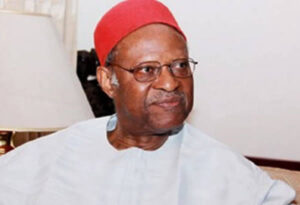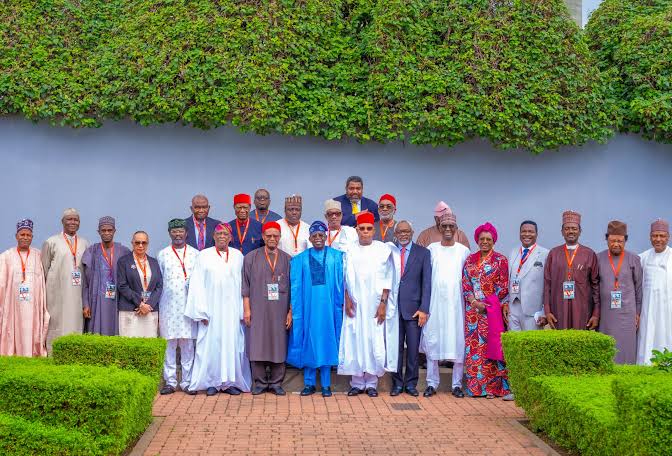In a crucial development, Emeka Anyaoku, a former Secretary-General of the Commonwealth and the current Chairman of the Patriots, has called on President Bola Tinubu to take bold action in reshaping Nigeria’s future. During a recent meeting at the State House in Abuja, Anyaoku proposed the creation of a National Constituent Assembly to draft a brand-new constitution for the country.

Anyaoku outlined the proposal, urging President Tinubu to introduce an executive bill to the National Assembly. This bill would focus on two key measures: first, it would call for the establishment of the National Constituent Assembly, and second, it would seek to legislate for a national referendum, a process currently absent in Nigerian law.
The National Constituent Assembly, as envisioned by Anyaoku, would be composed of individuals elected by the public on a non-partisan basis. Specifically, three representatives would be chosen from each of Nigeria’s 36 states, along with one from the Federal Capital Territory. This diverse group would then be tasked with drafting a new constitution that truly reflects the will of the people.
Anyaoku emphasized the importance of this process by stating that once the draft constitution is completed, it should be put to a national referendum. This would allow Nigerians to have the final say on the document that would govern their nation, ensuring that the new constitution is a product of the people’s collective voice.
In addition to the constitutional proposal, Anyaoku also addressed the ongoing wave of protests across the country. He advised the President to engage in meaningful dialogue with protest leaders, stressing that the government, both at the federal and state levels, should take the lead in these discussions.
Moreover, Anyaoku urged law enforcement agencies, including the police and army, to refrain from using lethal force when managing the protests. His concern was clear: the preservation of life and the peaceful resolution of conflicts must be prioritized.
This call to action by Anyaoku reflects the deepening concerns about Nigeria’s current state and the need for comprehensive reforms. Whether President Tinubu will act on these proposals remains to be seen, but the implications of such changes could be profound for the nation’s future.




